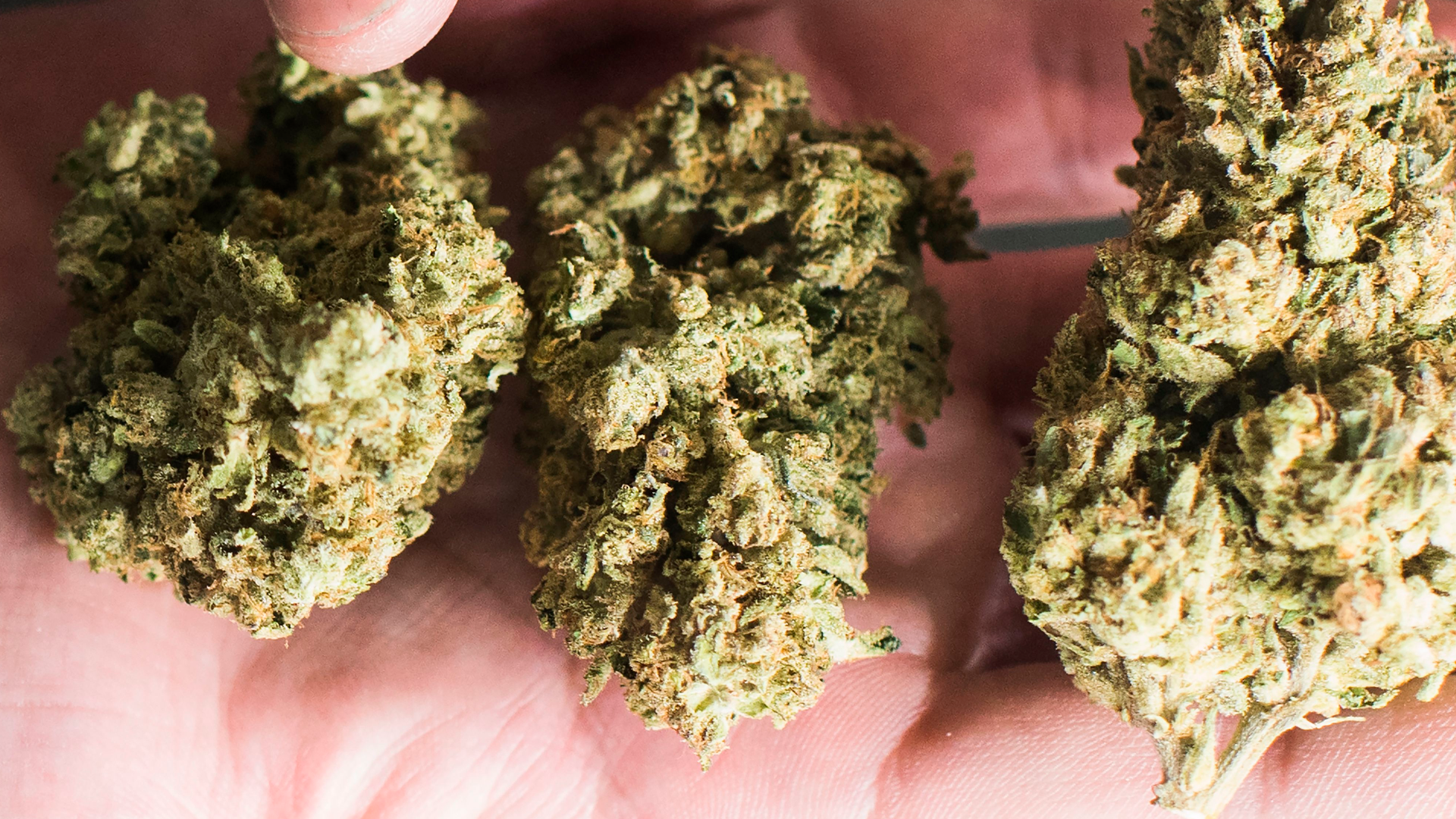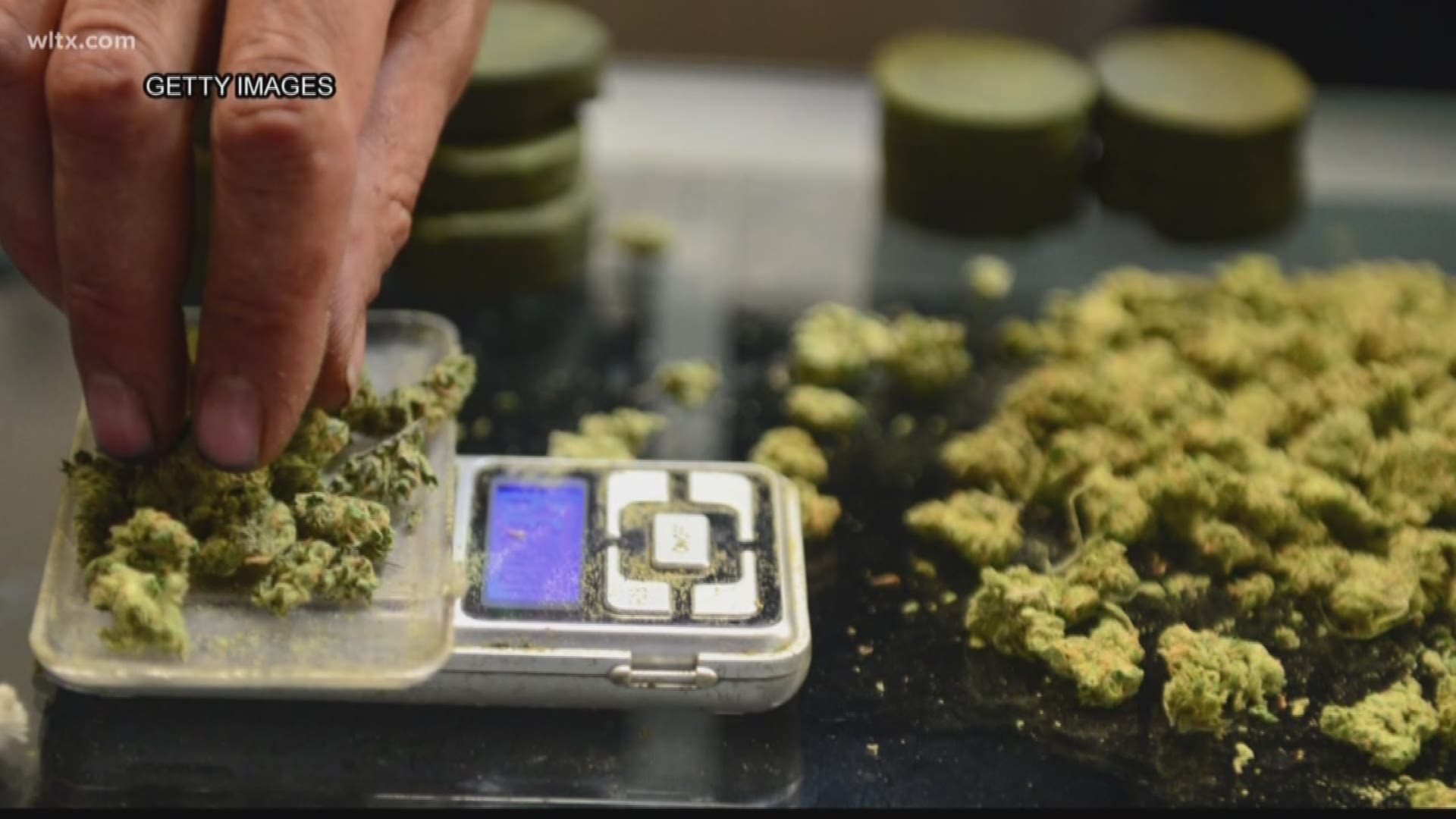COLUMBIA, S.C. — South Carolina is proposing legalizing medical marijuana to help people who suffer from certain chronic illnesses and pain.
So, what would the bill actually do? And who would benefit from it?
Let's take a deeper look at the SC Compassionate Care Act, Bill S.366 in the SC Senate, introduced by Senators Tom Davis (R-46), Brad Hutto (D-40), Paul Campbell (R-44), Marlon Kimpson (D-42), Darrell Jackson (D-21), Mia McLeod (D-22), and M.B. Matthews (D-45).
Davis says the bill is the most strictly regulated and socially conservative medical marijuana bill in the nation and reflects the culture of South Carolinians. The bill has undergone four years of subcommittee processes with hundreds of hours of testimony and legislative opinions incorporated into the latest version.
The senators hope that Gov. Henry McMaster will sign the bill into law in 2019.
What the bill would allow
- Up to 2 ounces of medical cannabis in the forms of vaporized flower or oil, gel caps, suppositories, patches, edibles or topical creams.
- Smoking cannabis would NOT be allowed. It would be unlawful for a cardholder to smoke cannabis or use a device to facilitate the smoking of cannabis. A violation of this subsection is punishable by a civil fine of up to $150.
- Distribution of medical marijuana to someone for recreational use would be illegal, with fines up to $5,000 and/or up to 5 years in jail.
Who it would cover
There will be a strict range of conditions for the approval of use of medical marijuana, and no use will be allowed without physician supervision and authorization.
According to the bill: Studies published since the 1999 Institute of Medicine report continue to show the therapeutic value of cannabis in treating a wide array of debilitating medical conditions. These include relief of the neuropathic pain that often fails to respond to conventional treatments; a reduction in patients' reliance on opiate-based painkillers; reduced symptoms and even complete remission from Crohn's disease; and relief of severe nausea, thereby increasing the chances of patients continuing life-saving treatment regimens.
'Debilitating medical condition' means one or more of the following:
- cancer currently requiring treatment
- multiple sclerosis
- a neurological disease or disorder
- glaucoma
- post-traumatic stress disorder (PTSD)
- Crohn's disease
- ulcerative colitis
- cachexia or wasting syndrome
- sickle cell anemia
- severe or persistent nausea in a person who is not pregnant and that is related to end of life or hospice care, or the individual is bedridden or home bound because of the condition
- a chronic medical condition causing severe and persistent muscle spasms
- or any chronic or debilitating disease or medical condition for which an opioid is currently or could be prescribed by a physician based on generally accepted standards of care.
Patients seeking medical marijuana must have written certification.
In the bill, 'written certification' means a document signed by a physician, stating that the patient has been diagnosed with a debilitating medical condition and could benefit from the use of medical cannabis. The certification may be made only in the course of a bona fide physician-patient relationship, must specify the qualifying patient's debilitating medical condition, and must be updated annually for each qualifying patient by the certifying physician. If the qualifying patient is expected to recover from the debilitating medical condition within a year of the written certification, not including if the patient may go into remission due to medical cannabis treatment, or the qualifying patient is not expected to benefit from medical cannabis for an entire year, the written certification shall specify that fact.
Patients will be issued an identification card with the prescription for medical marijuana.
Growing medical marijuana
The bill states "all cultivation, harvesting, processing, and packaging of cannabis must take place in a secure facility at a physical address provided to the department and SLED during the processing facility or cultivation center's registration process. The secure facility may be accessed only by agents of the medical cannabis establishment, law enforcement, emergency personnel, and adults who are twenty-one years of age and older who are accompanied by medical cannabis establishment agents. Establishments are subject to random inspections by SLED.
"To prevent diversion and protect public safety, the DHEC shall require the use of a single real-time, seed-to-sale tracking system used by all medical cannabis establishments and the department that complies with Health Insurance Portability and Accountability Act (HIPAA) guidelines, is hosted on a platform that allows for dynamic allocation of resources, provides data redundancy, and is capable of recovering from natural disasters within hours."
Supply chain auditing processes like this are a version of Blockchain technology that allows the tracking of products through all phases of production from growth to distribution, including sales, recalls and theft.
Under the bill, DHEC shall require that the system be capable of:
- tracking all plants, products, packages, patients, waste, transfers, conversions, packages, sales, and returns, and all with unique identification numbers;
- tracking lot and batch information throughout the entire chain of custody until the point of sale to a cardholder;
- tracking all product, conversions, and derivatives throughout the entire seed-to-sale chain of custody;
- tracking plant, batch, and product destruction;
- tracking transportation of product;
- performing complete batch recall tracking capabilities that must be able to clearly identify all of the following details relating to the specific batch subject to the recall: all sold product; product available for sale (product that is in finished inventory, but not sold); product that is in the transfer process; work in progress (product that is being converted); and raw material (product that is in the post-harvest process, such as drying, trimming, and curing);
- reporting and tracking loss, theft, or diversion of product containing cannabis;
- reporting and tracking all inventory discrepancies to the department;
- reporting and tracking all sales and refunds to the department;
- receiving testing results electronically from independent testing laboratories via a secure application program interface (API) into the seed-to-sale tracking system, and directly attaching the testing results to the source batch and/or sample;
- restricting the altering of test results by the operator;
- providing the department with real-time access to the database;
- providing real-time analytics to the department regarding key performance indicators including, but not limited to: total daily sales; total plants in production; total plants destroyed; and total inventory adjustments
- providing other information specified by the department.
Dispensing medical marijuana
Each dispensary must contract with or employ at least one pharmacist, physician assistant, nurse practitioner, or clinical nurse specialist, who has completed a department-approved medical cannabis continuing education course. The pharmacist, physician assistant, nurse practitioner, or clinical nurse specialist must be reasonably available to advise and educate patients, in person or by telemedicine. A pharmacist, physician assistant, nurse practitioner, or clinical nurse specialist may contract with multiple dispensaries.
Funding the medical marijuana program
A South Carolina Medical Cannabis Program Fund will be established to ensure the availability of funds necessary to carry out the DHEC's responsibilities under this article. All monies collected pursuant to this article must be deposited into the fund. The funds must be used exclusively for the direct and indirect costs associated with the implementation, administration, and enforcement of this article.
Revenues generated in excess of the amount needed to implement and enforce this act shall be distributed every three months as follows: (a) fifty percent to the South Carolina Law Enforcement Division; (b) twenty-five percent to the South Carolina Department of Education; and (c) twenty-five percent to the state General Fund.
All sales of medical cannabis are subject to a six percent excise tax at the point of sale.
Oversight
A nine-member Medical Cannabis Advisory Board will be created that will be required to meet at least twice a year in order to review petitions to add qualifying conditions, consult with experts in South Carolina and other states with medical cannabis programs about ongoing research in the field, and, if necessary, hold public hearings before voting on whether to add new qualifying conditions.
The board members would serve four year terms and the board must be comprised of one appointment from each of the following:
- The chief of State Law Enforcement Division or his designee;
- The director of the department or his designee;
- Two licensed medical doctors authorized to practice in this State, appointed by the Governor and confirmed by the Senate;
- One licensed doctor of osteopathic medicine authorized to practice in this State, appointment by the Governor and confirmed by the Senate;
- One licensed pharmacist authorized to practice in this State, appointed by the Governor and confirmed by the Senate;
- One cardholder, appointed by the Governor and confirmed by the Senate;
- One representative of a registered medical cannabis establishment, appointed by the Governor and confirmed by the Senate;
- One representative from a municipality of this State; appointed by the Governor and confirmed by the Senate


